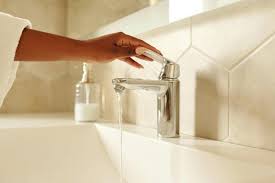As water conservation becomes a growing concern, more households and businesses are exploring ways to use resources sustainably. The most impactful method is reusing water that would otherwise go to waste. This process reduces water consumption and lessens the burden on municipal treatment systems. By adopting simple strategies, individuals can make their water management systems more effective and environmentally friendly.
Greywater recycling, which involves repurposing water from sinks, showers, and laundry, is an excellent way to contribute to sustainability. However, optimizing your system’s efficiency is key to reaping its benefits. The following tips will help you enhance the effectiveness of your water reuse setup while supporting eco-friendly living.
1. Know What to Include and Exclude
Efficient water reuse begins with identifying safe sources. Greywater excludes toilet and kitchen wastewater but includes water from bathrooms and laundry. This can be used for non-potable purposes like irrigation. Properly selecting reusable water minimizes risks to plants and soil, ensuring the recycled water is effective and environmentally friendly.
2. Regularly Maintain Your System
A well-maintained system performs better and lasts longer. Routine checks can help identify clogs, leaks, or other issues that reduce efficiency. Clean filters and pipes as needed to prevent blockages and ensure pumps and storage tanks are functioning correctly. Regular upkeep saves you money on repairs and provides optimal water flow and reuse.
3. Use Eco-Friendly Cleaning Products
The cleaning products you use affect recycled water quality. Harsh chemicals in conventional soaps can harm plants and soil. Choose biodegradable, non-toxic greywater recycling options to keep water safe for irrigation, protecting your garden and landscaping while supporting sustainable water reuse.
4. Match Your System to Your Needs
Choose a water reuse system that matches your household size and usage. Small homes thrive with simple gravity-fed setups, while more significant properties need advanced systems with pumps and filtration. Evaluating your water generation ensures optimal collection and efficient usage tailored to your needs.
5. Optimize Water Flow for Irrigation
Repurposed water for irrigation is one of the most common applications, but doing it efficiently requires careful planning. Distribute water evenly across your garden to avoid over-saturating certain areas. Drip irrigation systems are particularly effective because they control water flow precisely and reduce waste. You can maximize its impact while conserving even more by fine-tuning how water is delivered to your plants.
Ensuring water is kept safe and clean for systems with storage tanks is crucial. Use sealed containers to prevent contamination and algae growth. Regularly clean storage units to maintain the quality of the water. Proper storage practices help extend the usability of the recycled water and reduce the risk of odors or bacterial growth.
7. Educate and Engage Your Household
An efficient water reuse system relies on everyone in the household understanding how it works and why it matters. Educate family members about what can and cannot go down the drain, and encourage practices like shorter showers to reduce unnecessary water use. When everyone is mindful, the entire process becomes more efficient and impactful.
Supporting Your Sustainability Goals
Modern water reuse systems help reduce ecological footprints, supporting eco-conscious living through simple or advanced setups. Choosing the right tools and best practices ensures effectiveness and sustainability. Reliable providers offer tailored services to design, install, and maintain efficient water management systems for households and businesses seeking customized solutions.
Maximizing the efficiency of greywater recycling is not just about saving water—it’s about creating a sustainable future. By following these practical tips, individuals can make the most of their systems, contributing to water conservation efforts while enjoying cost savings. Embracing smarter water reuse practices is a step toward a greener, more resourceful lifestyle.

